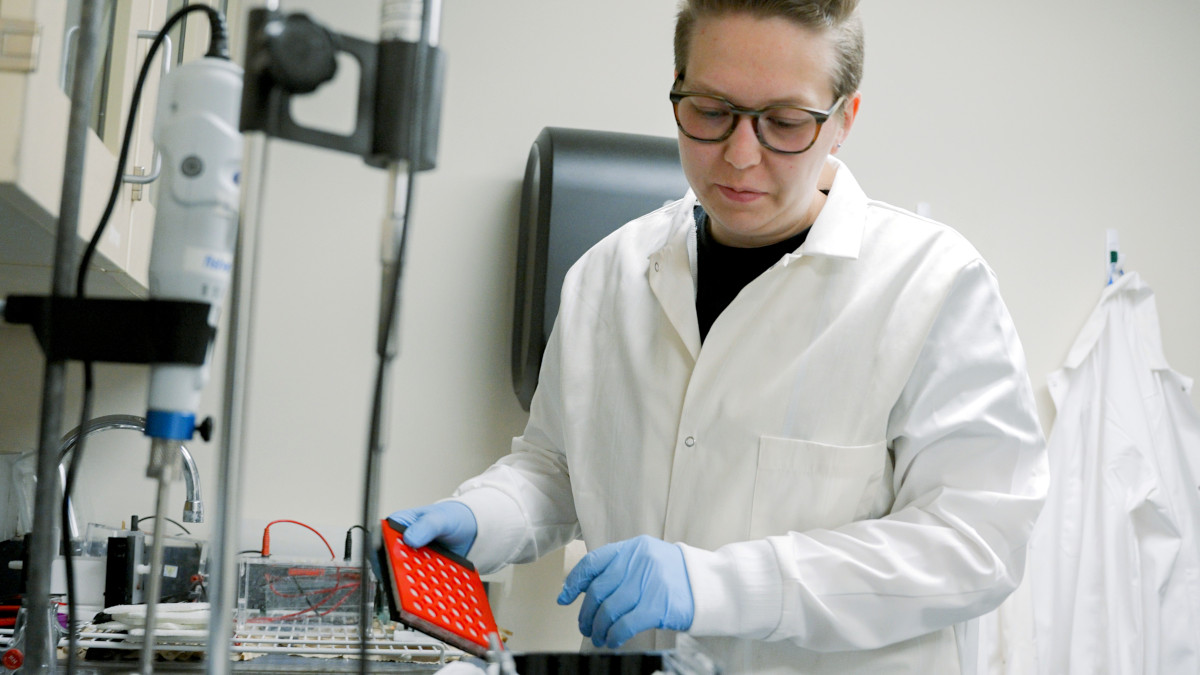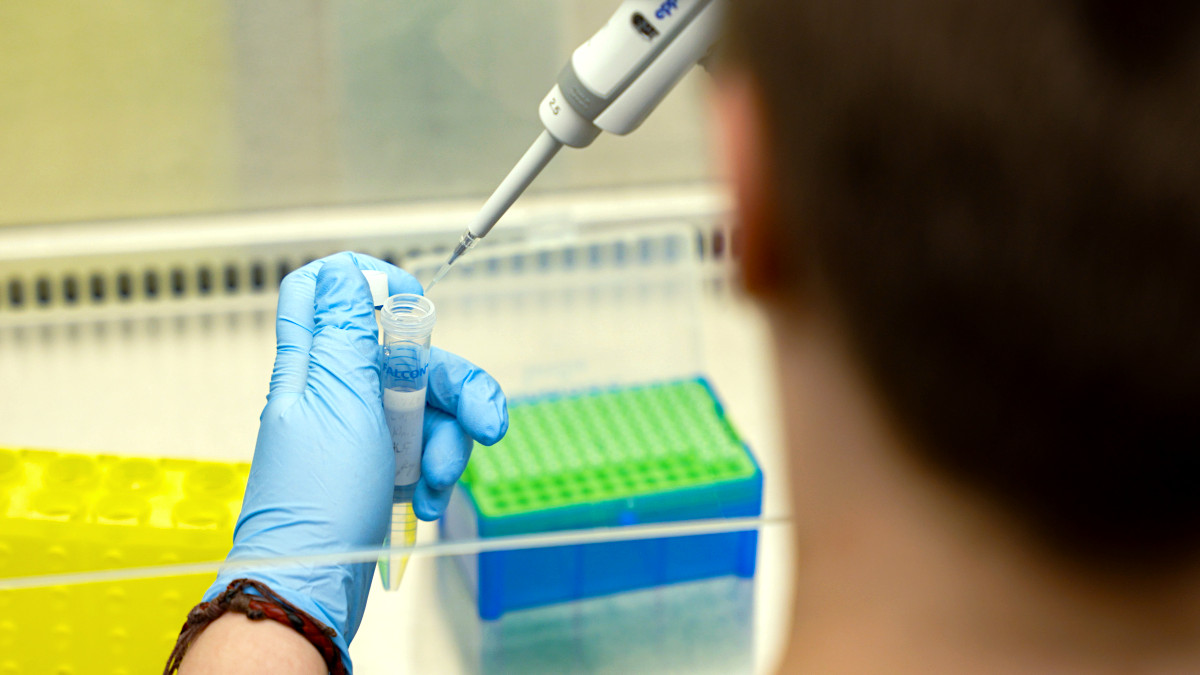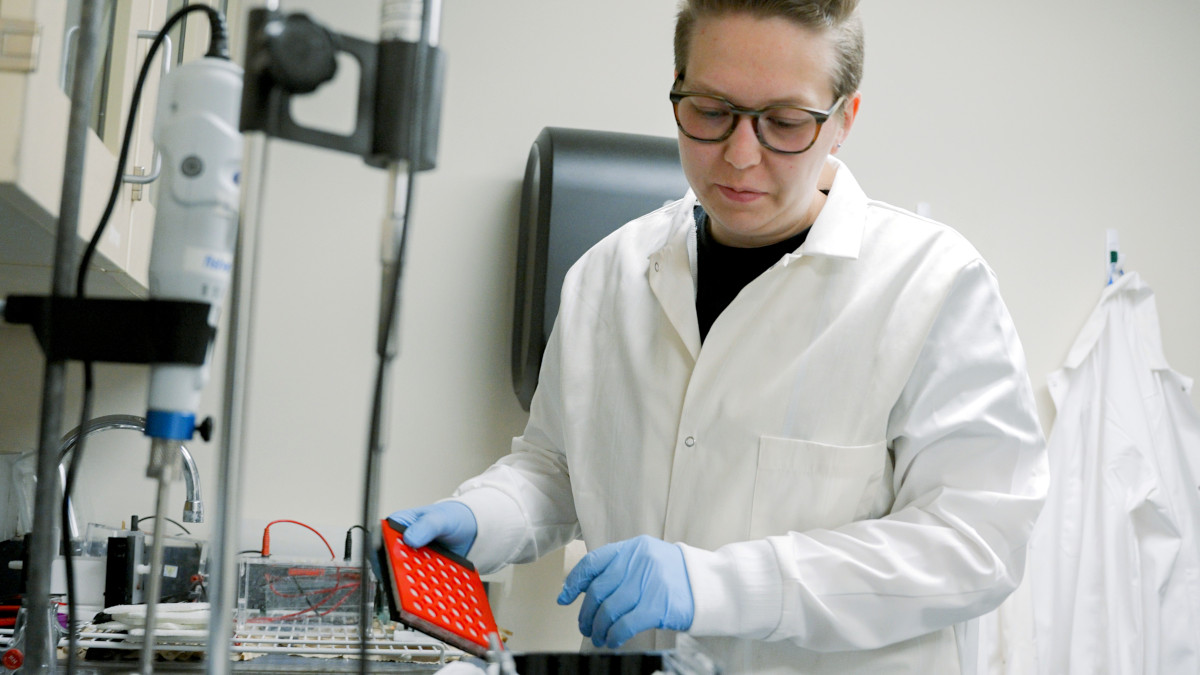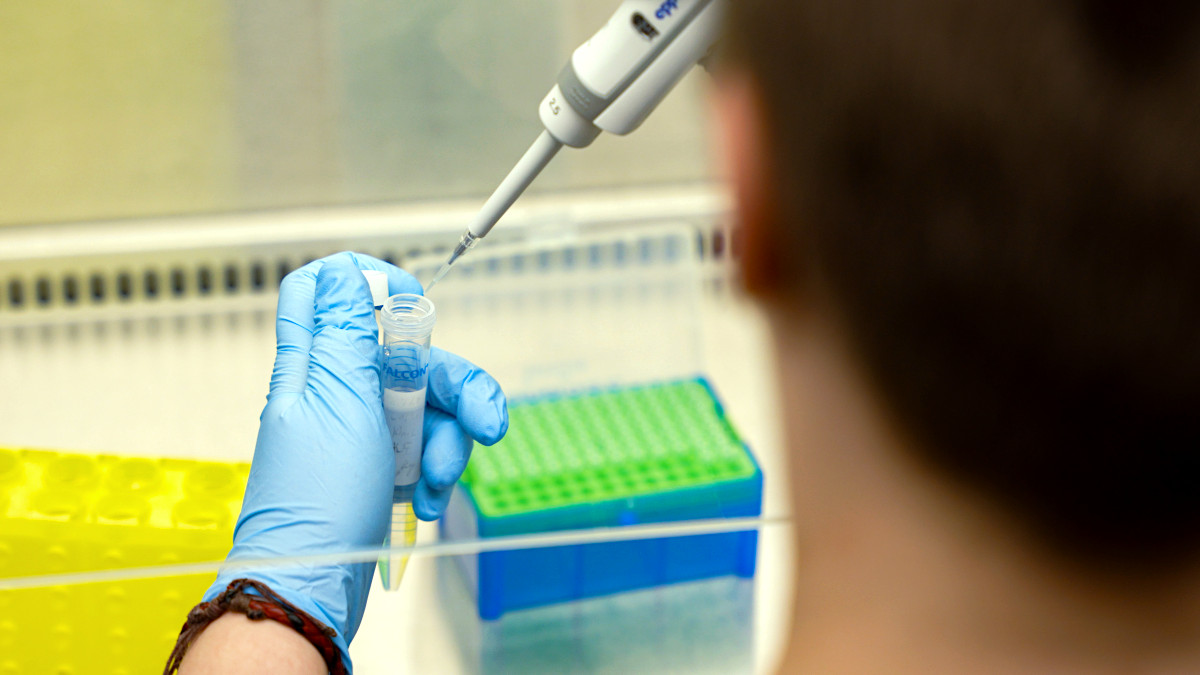Taco Tuesday & Tendon Engineering
Alyssa Hansten Finds Social Collaboration and Career Guidance Through Undergraduate Research
Taco Tuesday and tendon engineering may not seem like they go hand in hand, but for Alyssa Hansten, both experiences have generated some of her fondest memories at the University of Idaho.
“Undergraduate research groups are really tight knit,” she said. “The work we’re doing is hard – but it’s important – and taking breaks – like going to lunch together or getting coffee - are necessary. Your lab mates are there with you through challenges, through success, developing friendships comes naturally.”
Hansten is graduating with her bachelor’s in biological engineering after participating in undergraduate research for six semesters in the College of Enginering’s Tendon Tissue Engineering Lab.
She was also a DeVlieg Scholar in 2022 and 2021. Funded through the DeVlieg Foundation, this scholar program promotes educational hands-on experiences with emphasis in science, engineering, renewable energy and preservation of natural resources.
The tendon engineering lab, operated under Chemical and Biological Engineering Associate Professor Nathan Schiele, is known for its large cohort of students roaming in and out of the lab throughout the year.
Hansten and her fellow students are researching the mechanisms that guide tendon tissue formation and how stem cells become tendon to ultimately engineer tendon tissue replacements and regenerative therapies. The U of I lab is one of the few in the country focused on this effort.
“I know a lot of friends and family members with tendon injuries,” she said, “Knowing that I am doing research that might actually help future generations is really the fire has kept me going for the last two years.”
The lab’s unique research helps students earn funding toward their college careers and research goals through national grants from large entities, including the National Institutes of Health, Idaho IDeA Network of Biomedical Research Excellence (INBRE) and from donor support. Students manage their own projects to better understand how cells become tendon. Hansten is working with her team to publish a paper on the research, which aims to identify the biochemistry that regulates connections between stem cells and their likelihood to become tendon.
“You go to your peers or your faculty advisor for when things don’t work in the lab,” she said. “When you have a success, you want someone to share it with, and your lab mates are right there with you.”

Hansten’s undergraduate research has helped her feel confident in her career path. She recently accepted a position at Gritman Medical Center in their Interventional Pain Clinic. The clinic helps patients manage pain through medicine, physical therapy, massage, chiropractor visits or yoga.
“You have a lot of different opportunities with an engineering degree – especially in biological engineering,” Hansten said. “You can go on to grad school, you can go to medical school, you can go into industry, you can go anywhere you want.”
Hansten said she had considered graduate school before accepting the position. Her decision was made easier through the guidance of her professor.
“Professor Schiele asked the tough questions, ‘Is this what you want to do? Have you thought about this? Are you happy?’ He really helped guide that struggle and that debate within myself to help me find where I wanted to be,” she said. “One of the unique things about undergraduate research at U of I is that lots of professors want their undergraduates to be truly ready for anything. They take you in as more of a family member rather than just someone in their lab.”
“Undergraduate research groups are really tight knit. Your lab mates are there with you through challenges, through success, developing friendships comes naturally.”
— Alyssa Hansten, Biological Engineering Class of 2023
Hansten is also part of Idaho’s only Grand Challenge Scholars Program, preparing students to solve the 14 Grand Challenges of Engineering in the 21st century, as established by the National Academy of Engineering.
The program helps students broaden their professional portfolios to include entrepreneurial experience, study abroad, professional development opportunities with industry leaders and ways to earn additional funding toward their college experience.
“A lot of the Grand Challenge Scholars program is research, but you can take it any way you want,” she said. “I knew I wanted to learn about different parts of the world. I used the funding I earned to study abroad in London to learn about health care in the United Kingdom and the evolution of medicine.”
The global perspective allowed Hansten to better understand the history of healthcare and see how her own education could be applied to make improvements as a future medical professional.

Article by Alexiss Turner, University Communications.
Photos by Garrett Britton, University Visual Productions.
Published in June 2023.








